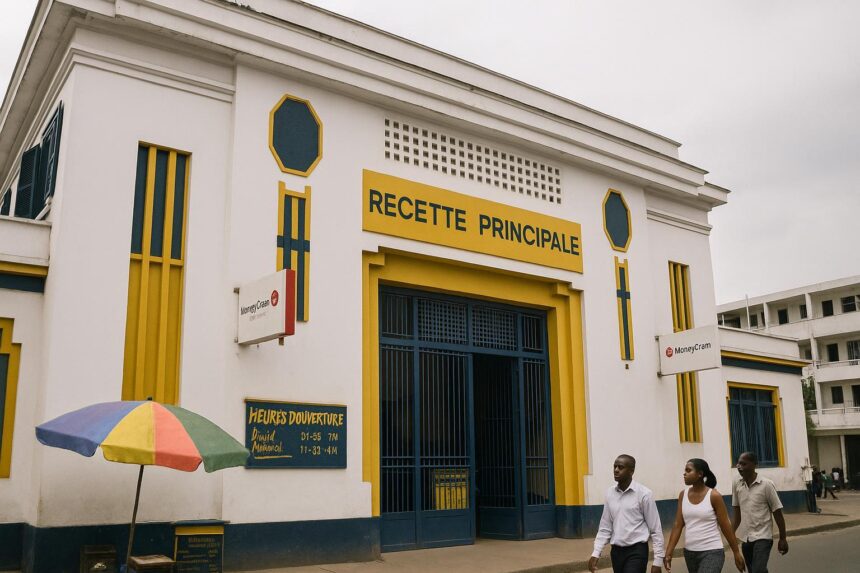Social tension hits Congo’s postal operator
Outside the main post office on Avenue de la Paix in Brazzaville, frustration hangs in the warm mid-October air. Employees of the Société des postes et de l’épargne du Congo, better known as SOPECO, say they have reached their breaking point after years of waiting.
On 7 October, an inter-union assembly regrouping the company’s main labor bodies voted for an unlimited sit-in if management does not act quickly. The decision added fresh urgency to a long-running dispute that already shadows the corridors of the beleaguered state-owned operator.
Union spokespeople insist the warning is not directed against public authorities but against what they describe as internal mismanagement. “We simply want respect for the rules and for our families to eat,” one delegate told local reporters after the vote.
Salary arrears erode morale
At the heart of the conflict sits a staggering wage backlog. Unions calculate more than fifty months of unpaid salaries have accumulated over the past seven years, pushing hundreds of postal clerks, drivers and sorters to borrow, skip meals or abandon children’s schooling.
Staff representatives recall that a protocol signed in January 2023 foresaw a clear repayment calendar. Nearly ten months later, they say, the document “is considered null”, with only partial settlements for March and April wages, transferred in August after repeated reminders.
Sit-in seen as last resort
The announced sit-in would see crews occupy headquarters day and night until solutions emerge. Unlike a classic strike, the action keeps staff inside the premises, a tactic designed to protect mail and savings accounts while demonstrating resolve.
The inter-union front includes the Syndicat général de la poste and the Fédération des travailleurs du secteur postal, historically rival organisations that now coordinate press releases and security rosters. Their unity, observers say, increases pressure for a negotiated settlement.
Union leaders underline that essential community services remain their priority. However, they caution that if grievances linger, operations from parcel sorting to pension payments could gradually slow, a scenario they prefer to avoid yet consider inevitable without dialogue.
Claims of misallocated resources
Beyond wages, workers question the use of revenue from the electronic stamp, a levy intended to modernise the network. They allege that proceeds have vanished without trace, while delivery vans stand immobile for lack of tyres and furniture rots in leaking offices.
Another burning issue concerns what unions label “arbitrary” promotions carried out by the current general manager. They demand immediate cancellation of the reclassifications, arguing that career ladders fixed by national regulations must override discretionary decisions.
The leadership has not publicly answered the accusations. Observers note that postal firms worldwide face digital disruption, yet employees here stress that technological challenges cannot excuse what they view as avoidable administrative lapses.
Agents cite leaking roofs over belts, power cuts stopping franking machines, and trucks parked for lack of insurance. Such setbacks, they say, tarnish a service that once symbolised national connectivity.
Spotlight on Banque Postale governance
SOPECO owns a fifth of the Banque postale du Congo, a fledgling financial arm meant to boost inclusion. Unions therefore insist that the post of secretary-general inside the bank be reserved for a qualified postal worker, believing such an appointment would secure corporate interests.
A representative summed up the mood: “If we contribute capital, we must also contribute expertise.” The request is framed as a logical extension of shareholding rights rather than a political demand, maintaining a cooperative tone toward public decision-makers.
Possible ripples across economy
Postal flows may appear modest beside oil or timber exports, yet the network still handles civil-service pay slips, small business parcels and pension vouchers. Any prolonged slowdown could inconvenience thousands of households and stall micro-commerce linking Brazzaville to remote localities.
Staff fear that repeated hiccups could push customers toward agile private couriers, eroding the income required to settle wages.
Union economists within the company argue that even short interruptions send ripple effects through supply chains. They point out that market traders who rely on courier bags to restock phone accessories or spare parts could face rising costs and missed sales.
For the time being, union delegates say they remain open to discussion. They have officially requested that management reopen the bargaining table within days, hoping to avoid escalatory steps while still ensuring that promises translate into bank statements.
Next calendar dates
According to a communiqué circulated after the 7 October meeting, workers will gather again this week to fix the exact start of the sit-in. If no progress is recorded, the mobilisation could begin before the end of the month and continue “until further notice”.
In the meantime, customers queuing for money orders or waiting for long-lost letters keep asking the same question at the counters: will the yellow postbox still be there tomorrow? SOPECO employees hope the answer remains yes, provided their own payslips reappear first.






















